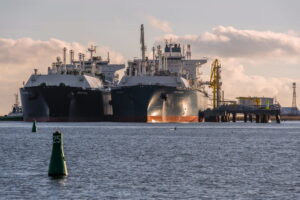– Despite the energy security issues raised by Warsaw during a press conference announcing the first LNG delivery contract from the USA to Poland, it is now a business issue. However, the Russian media are picturing this matter the just opposite and they have reasons for it – Wojciech Jakóbik writes, editor-in-chief of BiznesAlert.pl.
In other text, I focused on the pricing formula of the PGNiG-Centrica contract, which according to PGNiG’s declaration is to be „marketable” and according to the Energy Minister’s announcement „European”, i.e. connected with one of the gas exchanges in Europe. This is the least emphasized aspect of the agreement that matters most. It is being ridiculed in the Russian media. This facilitates improper message from Poland, stating that the contract with Centric was signed for security reasons. In the meantime, if one believes the assurances of the authorities, it was just a good business. Energy security is provided by the infrastructure, i.e. the existing and constantly developing LNG terminal in Świnoujście and the planned Baltic Pipe.
PGNiG-Centrica relations is a business
Russian Neftegaz.ru writes that Poles have agreed to five years of contractual “yoke”. In fact, it assumes the possibility to receive up to 9 LNG cargoes from the Sabine Pass terminal in the United States via Centrica, which has financial problems, inter alia because at a time of high hopes for profit from LNG trade, it booked the significant capabilities of the US facility and now, facing significant oversupply, it must sell the assets. Polish people took advantage of the business opportunity and did not leave the company any other choice than to sell LNG on a discounted prices. From this point of view, the Energy Minister’s statement that the price will be „European” could upset UK investors. If that’s the case, then success is the result of the PGNiG London office, which has found a lucrative opportunity.
But the Russian media, notwithstanding the facts, continue to signal that Polish people have ordered billions of tons of expensive liquefied gas on request of Americans, according to Russia Today. The PGNiG-Centrica contract may turn out to be the opposite. Liquefied gas from the USA can be price competitive to the offer of Gazprom. Government Plenipotentiary for Strategic Energy Infrastructure Piotr Naimski estimated that the contract with the British, lowered the average price of gas supplies to Poland. According to the International Energy Agency and the Fitch agency, American liquefied gas will be the main competitor for gas from Russia in Europe.
Similarly, it is suggested that the purchase of LNG from Centrica was linked to the plan of bringing Patriot batteries to Poland. This is a suggestion to which there is no confirmation other than the similar dates when the information on the contract and rockets appeared. It suggests, however, that contracts are subject to trade that goes beyond business rationality. It is difficult to confirm, especially since the LNG contract was not signed with Cheniere Energy from the US but with the British Centrica.
Relations with Gazprom are politics
Relations with Gazprom are actually more politics than business, especially in our part of Europe. This is confirmed by the European Commission antitrust investigation into alleged abuse of the Russians in order to maintain a dominant position in the Central and Eastern European market – market sharing, unfair pricing and abuse of infrastructure such as the Yamal pipeline. Although talks on remedies have not ended yet, the Russians have been caught up in non-market behavior, which is probably due to the need of Gazprom’s political goals, another extension of Moscow’s political apparatus. These facts are awkward for Moscow in times of increasing market competition. It is, therefore, better to drop the substitute subject of Poles importing LNG.
It is expected in the future to maintain the narrative that Poles are running a cost-ineffective policy of independence from Russia. It can already distinguished by business facts like the PGNiG-Centrica agreement, which confirms that in general terms Warsaw is looking forward to cheaper gas for Poles.








